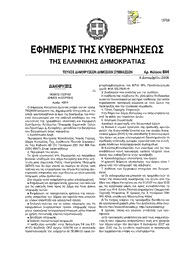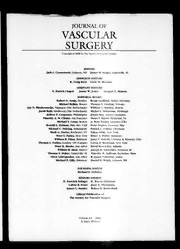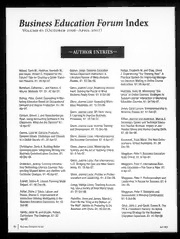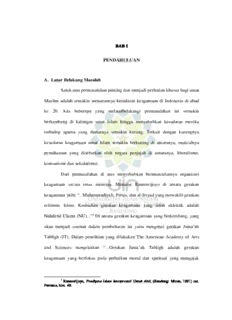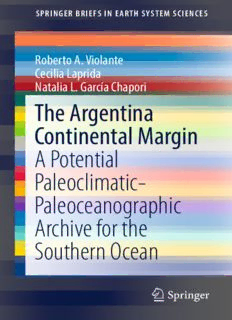
The Argentina Continental Margin: A Potential Paleoclimatic-Paleoceanographic Archive for the Southern Ocean PDF
Preview The Argentina Continental Margin: A Potential Paleoclimatic-Paleoceanographic Archive for the Southern Ocean
SPRINGER BRIEFS IN EARTH SYSTEM SCIENCES Roberto A. Violante Cecilia Laprida Natalia L. García Chapori The Argentina Continental Margin A Potential Paleoclimatic- Paleoceanographic Archive for the Southern Ocean 123 SpringerBriefs in Earth System Sciences Series editors Gerrit Lohmann, Bremen, Germany Lawrence A. Mysak, Montreal, Canada Justus Notholt, Bremen, Germany Jorge Rabassa, Ushuaia, Argentina Vikram Unnithan, Bremen, Germany More information about this series at http://www.springer.com/series/10032 Roberto A. Violante Cecilia Laprida (cid:129) í Natalia L. Garc a Chapori The Argentina Continental Margin A Potential Paleoclimatic-Paleoceanographic Archive for the Southern Ocean 123 RobertoA.Violante Natalia L. GarcíaChapori Division of Marine Geologyand NationalCouncilofScientificandTechnical Geophysics,DepartmentofOceanography Research,InstituteofAndeanStudiesDon Argentina Hydrographic Survey PabloGroeber,Department of Geology BuenosAires University of BuenosAires Argentina BuenosAires Argentina Cecilia Laprida NationalCouncilofScientificandTechnical Research,InstituteofAndeanStudiesDon PabloGroeber,Department of Geology University of BuenosAires BuenosAires Argentina ISSN 2191-589X ISSN 2191-5903 (electronic) SpringerBriefs inEarth System Sciences ISBN978-3-319-04195-7 ISBN978-3-319-04196-4 (eBook) DOI 10.1007/978-3-319-04196-4 LibraryofCongressControlNumber:2017932421 ©TheAuthor(s)2017 Thisworkissubjecttocopyright.AllrightsarereservedbythePublisher,whetherthewholeorpart of the material is concerned, specifically the rights of translation, reprinting, reuse of illustrations, recitation, broadcasting, reproduction on microfilms or in any other physical way, and transmission or information storage and retrieval, electronic adaptation, computer software, or by similar or dissimilarmethodologynowknownorhereafterdeveloped. The use of general descriptive names, registered names, trademarks, service marks, etc. in this publication does not imply, even in the absence of a specific statement, that such names are exempt fromtherelevantprotectivelawsandregulationsandthereforefreeforgeneraluse. The publisher, the authors and the editors are safe to assume that the advice and information in this book are believed to be true and accurate at the date of publication. Neither the publisher nor the authorsortheeditorsgiveawarranty,expressorimplied,withrespecttothematerialcontainedhereinor for any errors or omissions that may have been made. The publisher remains neutral with regard to jurisdictionalclaimsinpublishedmapsandinstitutionalaffiliations. Printedonacid-freepaper ThisSpringerimprintispublishedbySpringerNature TheregisteredcompanyisSpringerInternationalPublishingAG Theregisteredcompanyaddressis:Gewerbestrasse11,6330Cham,Switzerland Contents 1 Introduction.... .... .... ..... .... .... .... .... .... ..... .... 1 2 Continental Margins in the Global Context ... .... .... ..... .... 3 References.. .... .... .... ..... .... .... .... .... .... ..... .... 8 3 The Argentina Continental Margin: Location and Significance. ..... .... .... .... .... .... ..... .... 11 3.1 Geotectonic Considerations, Types of Margins and Stratigraphy. .... ..... .... .... .... .... .... ..... .... 15 3.1.1 Brief History of the Margin Evolution in the Context of the Southern Hemisphere.... ..... .... 15 3.1.2 Margin Types and Geotectonic Configuration.. ..... .... 18 3.1.3 Stratigraphic Evidences of the Margin Evolution .... .... 21 References.. .... .... .... ..... .... .... .... .... .... ..... .... 27 4 Morphosedimentary Configuration of the Argentina Continental Margin.. .... ..... .... .... .... .... .... ..... .... 33 4.1 Coastal Plains... .... ..... .... .... .... .... .... ..... .... 34 4.2 Continental Shelf .... ..... .... .... .... .... .... ..... .... 36 4.3 Shelf Break. .... .... ..... .... .... .... .... .... ..... .... 42 4.4 Slope . .... .... .... ..... .... .... .... .... .... ..... .... 42 4.5 Rise .. .... .... .... ..... .... .... .... .... .... ..... .... 47 4.6 Submarine Canyons .. ..... .... .... .... .... .... ..... .... 48 4.7 Argentine Basin . .... ..... .... .... .... .... .... ..... .... 48 References.. .... .... .... ..... .... .... .... .... .... ..... .... 49 5 Climate and Oceanographic Background . .... .... .... ..... .... 55 5.1 Regional Climate Background ... .... .... .... .... ..... .... 55 5.1.1 Intertropical Convergence Zone .... .... .... ..... .... 56 5.1.2 South American Monsoon System .. .... .... ..... .... 57 5.1.3 Southern Hemisphere Westerlies.... .... .... ..... .... 58 v vi Contents 5.1.4 South Atlantic Convergence Zone... .... .... ..... .... 58 5.2 Oceanographic Background . .... .... .... .... .... ..... .... 59 5.2.1 The Western South Atlantic and the Meridional Overturning Circulation... .... .... .... .... ..... .... 59 5.2.2 Western South Atlantic Main Currents ... .... ..... .... 61 5.2.3 Western South Atlantic Hydrographic Structure ..... .... 64 References.. .... .... .... ..... .... .... .... .... .... ..... .... 65 6 Principles of Paleoceanographic Reconstruction.... .... ..... .... 71 6.1 Paleoceanography and Proxy Data .... .... .... .... ..... .... 72 6.2 Climate Proxies . .... ..... .... .... .... .... .... ..... .... 77 6.3 Biological Proxies: Fossils as Paleoceanographic Proxies.... .... 78 6.3.1 Foraminiferida. ..... .... .... .... .... .... ..... .... 79 6.3.2 Coccolithophorids... .... .... .... .... .... ..... .... 79 6.3.3 Dinoflagellates. ..... .... .... .... .... .... ..... .... 80 6.3.4 Diatoms.. .... ..... .... .... .... .... .... ..... .... 80 6.3.5 Radiolarians .. ..... .... .... .... .... .... ..... .... 81 6.3.6 Corals... .... ..... .... .... .... .... .... ..... .... 81 6.3.7 Ostracods .... ..... .... .... .... .... .... ..... .... 82 6.3.8 Mollusks. .... ..... .... .... .... .... .... ..... .... 82 6.4 Biomarkers as Paleoceanographic Proxies .. .... .... ..... .... 83 6.4.1 Alkenones.... ..... .... .... .... .... .... ..... .... 83 6.4.2 N-Alkyl-Lipids ..... .... .... .... .... .... ..... .... 84 6.5 Geological Proxies ... ..... .... .... .... .... .... ..... .... 84 6.5.1 Geomorphology..... .... .... .... .... .... ..... .... 85 6.5.2 Sedimentary Architecture and Structures.. .... ..... .... 86 6.5.3 Physical Properties .. .... .... .... .... .... ..... .... 87 6.5.4 Geochemical Properties... .... .... .... .... ..... .... 87 References.. .... .... .... ..... .... .... .... .... .... ..... .... 88 7 State of the Art in the Paleoceanographic Reconstructions at the Argentina Continental Margin. .... .... .... .... ..... .... 91 7.1 Reconstructions in the Continental Shelf ... .... .... ..... .... 91 7.2 Reconstructions in the Slope and Rise . .... .... .... ..... .... 97 7.2.1 Paleoceanographic and Biostratigraphic Background Offshore the Argentina Continental Margin.... ..... .... 97 7.2.2 Geomorphological Records.... .... .... .... ..... .... 99 7.2.3 Sedimentary Architecture and Structures as Records.. .... 100 7.2.4 Physical Proxies .... .... .... .... .... .... ..... .... 100 7.2.5 Geochemical Proxies. .... .... .... .... .... ..... .... 101 References.. .... .... .... ..... .... .... .... .... .... ..... .... 103 8 Conclusions .... .... .... ..... .... .... .... .... .... ..... .... 111 Further Readings. .... .... ..... .... .... .... .... .... ..... .... 112 Abbreviations AABW Antarctic Bottom Water AAIW Antarctic Intermediate Water AAO Antarctic Oscillation ACC Antarctic Circumpolar Current ACM Argentina Continental Margin AM Active Margin AMOC Atlantic Meridional Overturning Circulation BMC Brazil–Malvinas Confluence BP Before Present (14C age) CDW Circumpolar Deep Water DIC Oceanic Dissolved Organic Carbon Reservoir DSDP Deep Sea Drilling Program ENSO El Niño Southern Oscillation GDGT Glycerol Dialkyl Glycerol Tetraethers ITCZ Intertropical Convergence Zone LDEO Lamont–Doherty Earth Observatory LGM Last Glacial Maximum MCM Mixed (convergent + sheared) Continental Margin MOC Meridional Overturning Circulation Mwd Meters water-depth Myr Millions of years NADW North Atlantic Deep Water NAO North Atlantic Oscillation PMS Passive Margin Slope SACW South Atlantic Central Water SACZ South Atlantic Convergence Zone SAMS South American Monsoon SAMW Subantarctic Mode Water SHWW Southern Hemisphere Westerlies SSS Sea-Surface Salinity vii viii Abbreviations SST Sea-Surface Temperature STSF Subtropical Shelf Front TEX86 TetraEther Index of Tetraethers TMS Transcurrent and Transpressive Margin Slope T-SCM Transcurrent (Sheared) Continental Margin TW Tropical Water VRCM Volcanic Rifted Continental Margin WSA Western South Atlantic Ocean List of Figures Figure 2.1 Global map with details of the ocean floor features. The region of the Argentina Continental Margin is indicated by the red square. Observe the “lighter” colors around the continents, indicating the shallowest environments (shelf and part of the slope) in the continental margins. Compare the extension of the Argentine margin respect to other continental margins .. .... .... .... ..... .. 4 Figure 2.2 Schematic section of a typical passive margin with its component environments .... .... .... .... ..... .. 5 Figure 2.3 Schematic diagram of the Source-to-Sink system (modified after Curray 1975).... .... .... .... .... ..... .. 7 Figure 2.4 Basic scheme of the main branches of the Ocean Meridional Overturning Circulation.... .... .... .... .... .... ..... .. 8 Figure 3.1 Location of the Argentina Continental Margin in the context of South America. Note the extension of the margin (light blue color) in relation to the extension of the Argentine Republic .. ..... .... .... .... .... .... ..... .. 12 Figure 3.2 Main surface currents that compound the basic circulation in the Western South Atlantic Ocean (modified after Matano et al. 2010). Note the region (in front of the Río de la Plata) where north-sourced and south-sourced water-masses meet (Brazil–Malvinas Confluence)... .... .... .... .... ..... .. 13 Figure 3.3 Bathymetric map of the Argentina Continental Margin. Source Bathymetric Chart of the Western South Atlantic, Argentina Hydrographic Survey (1976). Geographic references mentioned in the text . .... .... .... .... ..... .. 15 ix
Description:The list of books you might like

Rich Dad Poor Dad

The Spanish Love Deception

Corrupt (Devil's Night #1)

Better Than the Movies
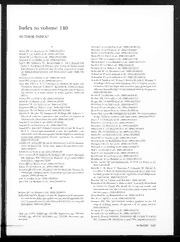
Surgery 2006: Vol 140 Index
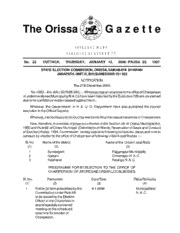
Odisha Gazette, 2005-12-27, No. 22
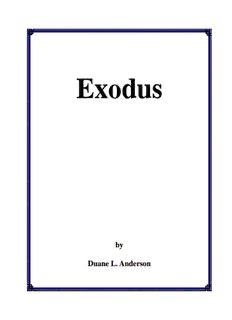
by Duane L. Anderson - AIBI Resources
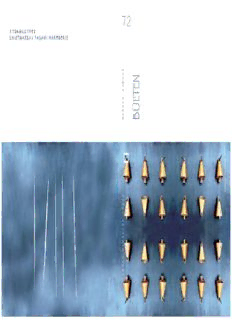
Bülten 72 (Temmuz-Ağustos 2009)

By Donald Abraham

Moroccan Foods Delicious Moroccan recipes by Hassane Sagaoui
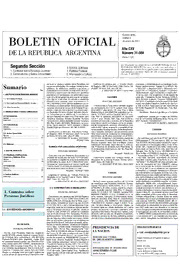
Boletín Oficial de la República Argentina. 2007 2da sección
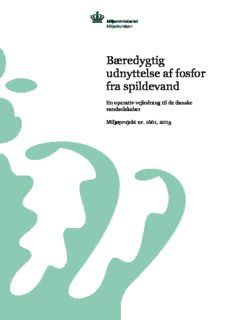
Bæredygtig udnyttelse af fosfor fra spildevand

bâtiment île-de-france
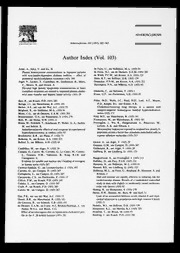
Atherosclerosis 1993: Vol 103 Index

A 3000 leggyakoribb angol szó
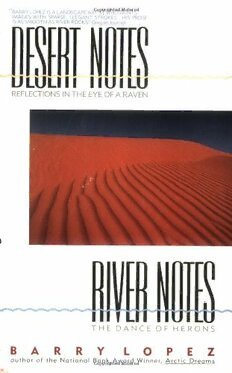
Desert Notes / River Notes
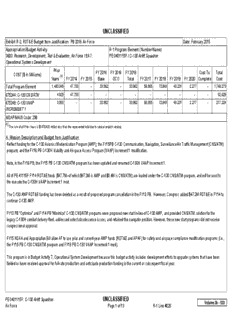
C-130 Airlift (USAF)
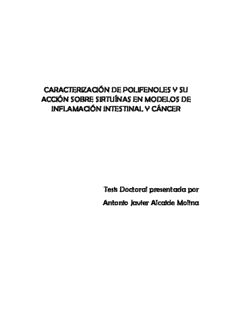
CARACTERIZACIÓN DE POLIFENOLES Y SU ACCIÓN SOBRE SIRTUÍNAS EN MODELOS DE
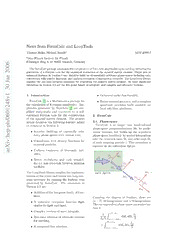
News from FormCalc and LoopTools
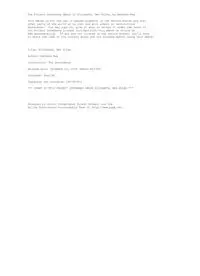
Elizabeth Her Folks by Barbara Kay
